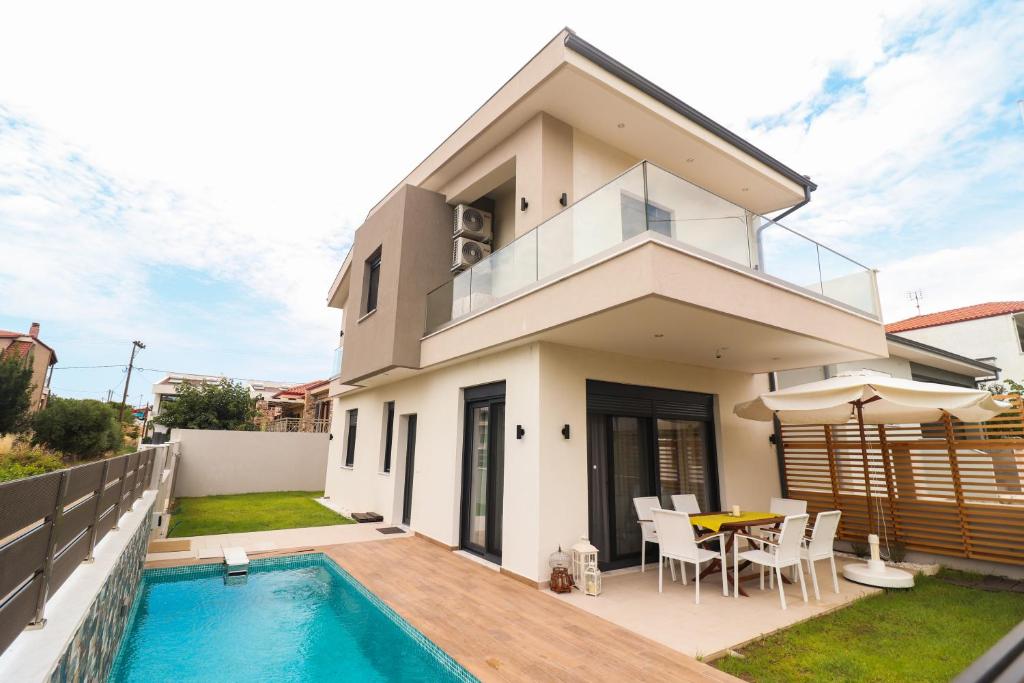Owning a pool comes with various responsibilities, one of which is maintaining the pool pump. A common question among homeowners is, ‘How long do pool pumps last?’ Understanding the lifespan, function, and maintenance of your pool pump can help you get the most out of this essential piece of equipment.
Typically, a well-maintained pool pump lasts between 8 to 15 years, but several factors can influence this duration.

What Is a Pool Pump?
A pool pump is a critical component of your swimming pool’s filtration system. It ensures that water circulates, which is vital for keeping the pool clean and safe for swimming.
Components of a Pool Pump
Understanding the different parts of a pool pump can give you a better idea of how it works and why its lifespan varies.
- The motor
- The impeller
- The housing

Factors That Affect the Lifespan of Pool Pumps
The lifespan of a pool pump can be influenced by multiple factors, including:
- Frequency of use
- Quality of water
- Maintenance practices
- Environmental conditions
Frequency of Use
More frequent use usually shortens the lifespan of the pump. However, consistent but moderate use can help maintain a balanced load, extending the pump’s life.
Maintenance Practices
Regular maintenance such as cleaning the pump and ensuring it is free from debris can significantly extend its lifespan. Learn more about pool cleaning here.

Signs That Your Pool Pump Needs Replacement
Knowing when to replace your pool pump can save you from costly repairs and ensure your pool remains in good condition. Look out for these common signs:
- Unusual noises
- Reduced water flow
- Leakage
- Frequent shutdowns
Maintenance Tips to Extend the Life of Your Pool Pump
Proper maintenance can significantly prolong the life of your pool pump. Here are some tips:
- Regular cleaning
- Frequent inspections
- Timely repairs
Regular Cleaning
Regularly clean the pump and remove any debris that may clog the system. This guide on how to clean your pool can be very helpful.
Frequent Inspections
Regular inspections can help identify any signs of wear and tear early on. This allows for timely repairs, which can extend the lifespan of your pump.
Choosing the Right Pool Pump
Choosing the right pool pump can also impact how long it lasts. Consider the following when selecting a pool pump:
- Size
- Type
- Energy efficiency
- Brand reputation
Size of the Pool Pump
The size of the pump should match the size of your pool to ensure optimal performance and longevity.
Energy Efficiency
Opting for an energy-efficient pool pump can save you money in the long run and reduce wear and tear on the pump itself.
Costs Associated with Pool Pumps
When considering the lifespan of a pool pump, it’s also essential to think about the costs involved, both in terms of initial investment and ongoing maintenance.
Initial Costs
Initial costs can vary widely depending on the pump’s brand, size, and features.
Maintenance Costs
Regular maintenance is crucial for extending the pump’s lifespan but also involves ongoing costs.
Environmental Considerations
Environmental conditions can also influence how long pool pumps last. For instance, pumps in regions with harsh weather conditions may have a shorter lifespan.
Comparing Different Brands
Not all pool pumps are created equal. Some brands are known for their durability and longevity, while others may not last as long.
Top Brands to Consider
- Brand A
- Brand B
- Brand C
The Role of Technology in Modern Pool Pumps
Technology has significantly improved the efficiency and lifespan of pool pumps. Modern pumps often come with features like variable speeds and smart controls.
Variable Speed Pumps
Variable speed pumps can adjust their speed to match the pool’s needs, which can extend the pump’s lifespan and save energy.
Environmental Impact
Modern pool pumps are designed to be more environmentally friendly, consuming less energy and producing fewer emissions.
How Home Design Impacts Pool Pumps
The design of your home and pool can also affect the lifespan of the pump. Pools that are located in areas with poor drainage or that are exposed to a lot of debris may require more frequent maintenance.
When designing or renovating your home, consider these crucial features for longevity. If you’re curious about improving your home, read how home repairs improve quality of life.
When to Consider a Professional
While regular maintenance can extend the lifespan of your pool pump, there are times when professional help is necessary. For instance, complex repairs or replacements should be handled by experts.
Frequently Asked Questions
How often should I replace my pool pump?
On average, you should replace your pool pump every 8 to 15 years, depending on various factors like usage and maintenance.
Can I extend the lifespan of my pool pump?
Yes, regular maintenance and proper care can significantly extend the lifespan of your pool pump.
What are the signs that my pool pump is failing?
Common signs include unusual noises, reduced water flow, and frequent shutdowns.
Conclusion
Understanding ‘How long do pool pumps last’ can help you ensure your pool remains a source of enjoyment for many years. With proper care, maintenance, and choosing the right pump, you can extend its lifespan, saving you time and money in the long run.
For more insights on pool management, you can read how a swimming pool can increase your home’s value.
As an Amazon Associate, I earn from qualifying purchases.

